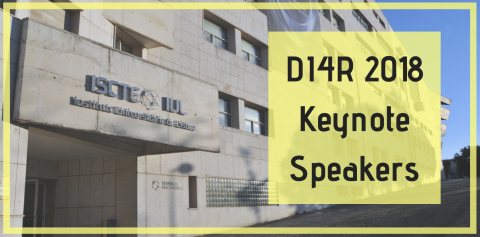
In arranging the second edition of DI4R Dr. Franciska de Jong has taken up the position of Programme Committee Chair, making sure that another successful conference will be hosted.
Dr. de Jong acts as the Executive Director of CLARIN ERIC leading the expansion and sustainability of CLARIN, the outreach to new user communities while strengthening collaboration with new partners and continents, and the promotion of collaboration with commercial partners.
We've asked her a few questions on how DI4R will be relevant for CLARIN in particular.
How do you think that the DI4R event can benefit the CLARIN community?
CLARIN is Europe’s digital infrastructure for language resources and the community behind it has always been supporting the Open Access movement. CLARIN is also adhering to the FAIR principles. As the DI4R event aims to boost the discussions on practical solutions and theoretical ideas behind Open Science the event is of general interest to the CLARIN community. In addition, DI4R is meant to be a meeting place for those providing digital infrastructures and the research communities to be served. DI4R is one of the events where the infrastructural requirements that come with the mission of CLARIN can be voiced in a very direct way. It is an opportunity for bringing the message about the needs of our community across and thus for enhancing the quality of the services we can offer to the researchers.
What are the advantages of integrated services in digital infrastructure for CLARIN and its community?
The researchers of the domains served by CLARIN, i.e. all domain in which language is a relevant data type, such as the social sciences and the (digital) humanities, benefit from easy access to the digital services that are beyond the standard facilities. The integrated access to services is an advantage as it allows these users to enlarge the scope of their research agenda, e.g. to run experiments on a larger scale supported by tools for automatic processing instead of manual annotation, or to increase the comparative perspective of their work by the possibility for exploring similar datasets in multiple languages and regions, or by being offered a pipeline of services or a workflow geared towards the needs inherent to specific scenarios of use.
Why would the DI4R event be worth visiting for the end users?
The Open Science movement relies on the idea of free dissemination of research data and results to all levels of potentially interested audience. Events such as DI4R bring together developers and data scientists from diverse disciplines which boosts cross-disciplinary discussions and exchange of experience.



